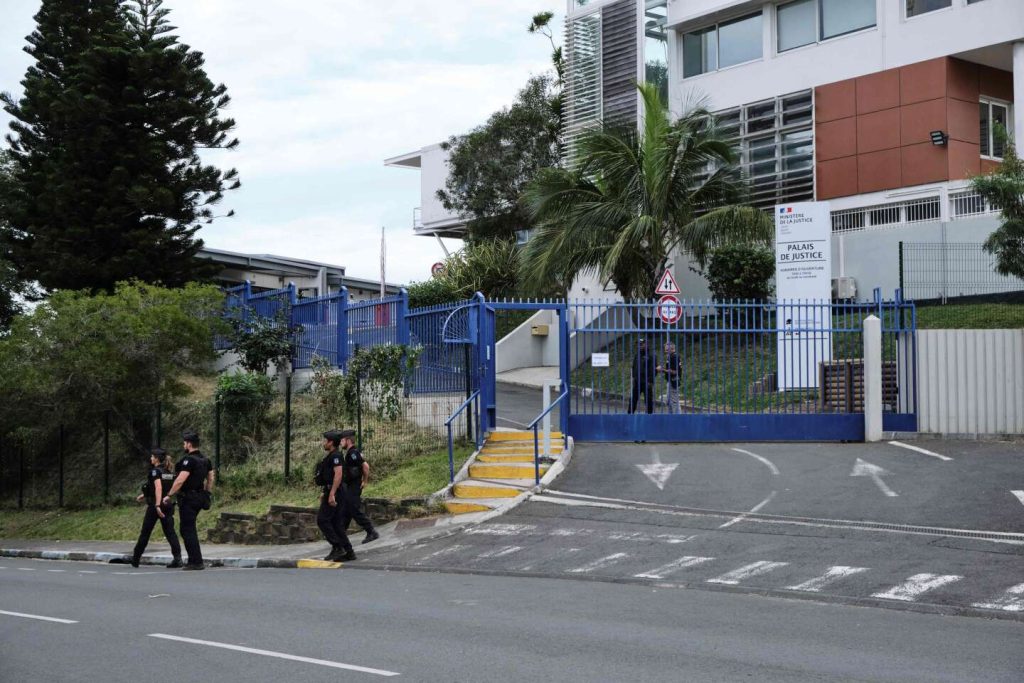New Caledonia is experiencing a resurgence of violence after six weeks of tension. Several buildings, including a municipal police station and a town hall, were set on fire on the night of Sunday, June 23, to Monday, June 24. This was marked by numerous clashes between pro-independence groups and law enforcement in Grand Noumea, resulting in one person being injured. The high commissioner, representing the French state in New Caledonia, stated in a press release that the night was turbulent and marked by disturbances across the main island, the Isle of Pines, and Mare, requiring the intervention of additional reinforcements due to confrontations with law enforcement, intentional fires, and roadblocks.
In Dumbéa, north of Nouméa, the municipal police premises and a garage were burned down. Four armored vehicles, including a state-of-the-art vehicle (of the Centaur type), were deployed. Several fires broke out, especially in Ducos and the Magenta neighborhood. Clashes between law enforcement and pro-independence activists in Bourail resulted in one person being injured. The high commissioner reported that several fires had been contained, particularly in Ducos and the Magenta neighborhood, with the municipal police premises and private vehicles being set on fire. Acts of violence, destruction, and attempted arsons also occurred in several places in Paita, with the Maré territorial brigade also being targeted.
On Monday morning, many schools remained closed due to the increased violence, and the expressway leading to the hospital was blocked on both sides at the Apogoti Scholars Bridge. The South Pacific archipelago has been experiencing violent disturbances since May 13, stemming from the opposition to a proposed electoral law amendment. These events have resulted in nine deaths, including two gendarmes, and immense damages totaling over a billion euros. On Saturday, seven activists linked to the pro-independence movement’s field action coordination cell (CCAT), suspected of being behind the uprising, were indicted and sent to mainland France for temporary detention.
The situation in New Caledonia has escalated, with ongoing tensions leading to further clashes and acts of violence. The high commissioner’s office reported multiple incidents of arson and attacks on law enforcement, as well as disruptions to public services, such as the closure of schools. The unrest in the region has been fueled by long-standing political and social tensions, with the recent wave of violence being a result of the ongoing dispute over electoral reforms. The violence has resulted in significant damage to infrastructure and property, as well as loss of life, highlighting the urgent need for resolution and reconciliation in the region.
Efforts are being made to address the root causes of the violence and instability in New Caledonia, with law enforcement stepping up their presence to maintain order and prevent further escalations. The detainment and indictment of activists connected to the pro-independence movement signify a crackdown on individuals suspected of inciting unrest, with authorities taking measures to prevent further violence. The situation remains fragile, with concerns about the potential for further clashes and destruction raising alarm among residents and authorities, underscoring the need for dialogue and peaceful resolution to the underlying issues fueling the unrest.
The international community has been monitoring the situation in New Caledonia closely, with calls for de-escalation and peaceful dialogue to resolve the ongoing crisis. The French government, as the colonial power overseeing the region, is under pressure to address the underlying grievances and work towards a sustainable solution to the political and social challenges facing New Caledonia. International organizations and neighboring countries in the region are also expressing solidarity and offering support to facilitate peaceful negotiations and prevent further violence, recognizing the importance of stability and reconciliation in the region for the well-being of its residents and the overall peace and security in the South Pacific.


